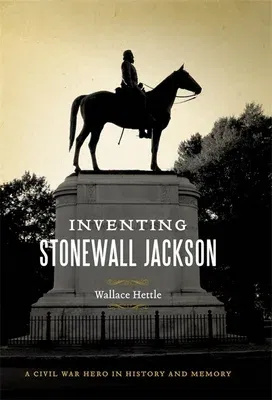Historians' attempts to understand legendary Confederate General Thomas
J. "Stonewall" Jackson have proved uneven at best and often contentious.
An occasionally enigmatic and eccentric college professor before the
Civil War, Jackson died midway through the conflict, leaving behind no
memoirs and relatively few surviving letters or documents. In Inventing
Stonewall Jackson, Wallace Hettle offers an innovative and distinctive
approach to interpreting Stonewall by examining the lives and agendas of
those authors who shape our current understanding of General Jackson.
Newspaper reporters, friends, relatives, and fellow soldiers first wrote
about Jackson immediately following the Civil War. Most of them,
according to Hettle, used portions of their own life stories to frame
that of the mythic general. Hettle argues that the legend of Jackson's
rise from poverty to power was likely inspired by the rags-to-riches
history of his first biographer, Robert Lewis Dabney. Dabney's own
successes and Presbyterian beliefs probably shaped his account of
Jackson's life as much as any factual research. Many other authors
inserted personal values into their stories of Stonewall, perplexing
generations of historians and writers.
Subsequent biographers contributed their own layers to Jackson's myth
and eventually a composite history of the general came to exist in the
popular imagination. Later writers, such as the liberal suffragist Mary
Johnston, who wrote a novel about Jackson, and the literary critic Allen
Tate, who penned a laudatory biography, further shaped Stonewall's myth.
As recently as 2003, the film Gods and Generals, which featured Jackson
as the key protagonist, affirmed the longevity and power of his image.
Impeccable research and nuanced analysis enable Hettle to use American
culture and memory to reframe the Stonewall Jackson narrative and
provide new ways to understand the long and contended legacy of one of
the Civil War's most popular Confederate heroes.

